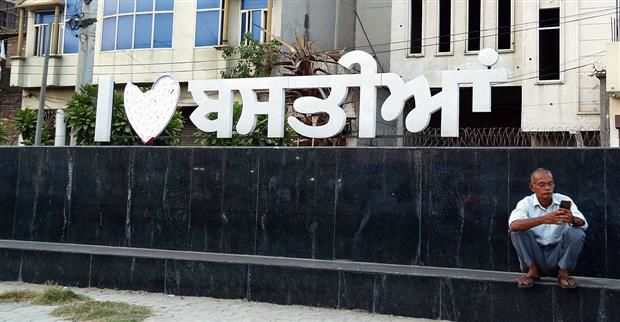Jalandhar West and its love for Bastis & Kots
Deepkamal Kaur
Jalandhar, July 8
As one enters the bypoll-bound Jalandhar West area from near Babu Jagjivan Ram Chowk, an iconic landmark reads in Punjabi, ‘I love Bastian’. The landmark gives outsiders a slightly different impression as ‘Basti’ generally means an overcrowded slum locality.
Fascinating stories of Partition
Jalandhar West has several fascinating stories of Partition as Sandeep Bhagat, who has served as Professor in Lyallpur Khalsa College, says: “Our ancestors came from Pakistan. They were first brought to a refugee camp in Burlton Park here. From here, they were allotted plots in Bhargo Camp, which was established in the name of Gopi Chand Bhargav, who was the first Chief Minister of undivided Punjab in 1947.”
There certainly are several slum dwellings in Jalandhar West, but Bastis here imply 12 settlements created in the city’s outer areas by the Muslim community and Pathans in the pre-Independence era. The elderly in the city say the place was then generally confined around the old GT Road and these localities, including Basti Nau, Basti Sheikh, Basti Danishmandan, Basti Guzan, Basti Bawa Khel, Basti Mithu, Basti Shah Kuli and Basti Ibrahim, were then considered to be distantly located.
If Bastis were largely Muslim pockets, Kots were Hindu dominated. These settlements were also located on the city’s outer fringes. Out of 12 Kots then, there is now just one left in Jalandhar West – Kot Sadiq. All others like Kot Pakshian, Kot Kishan Chand, Kot Lakhpat Rai and Kot Badal Khan are parts of Jalandhar Central area.
Sports goods manufacturer Ravinder Dhir, who maintains his family record of 500 years, says he has his roots in Basti Sheikh.
“My parents told me that at that time, the area was called Basti Sheikh Darvesh, after its founder. This Basti was founded in 1614. At that time, my ancestors were engaged in making tobacco products. Some Hindu families like ours lived in this Muslim area and they all shared an amicable relationship. The Muslims left the area during the time of Partition and Hindus coming from Pakistan occupied it,” he said.
Jalandhar West has several fascinating stories of Partition as Sandeep Bhagat, who has served as Professor in Lyallpur Khalsa College, says: “Our
ancestors came from Pakistan. They were first brought to a refugee camp in Burlton Park here. From here, they were allotted plots in Bhargo Camp, which was established in the name of Gopi Chand Bhargav, who was the first Chief Minister of undivided Punjab in 1947.”









